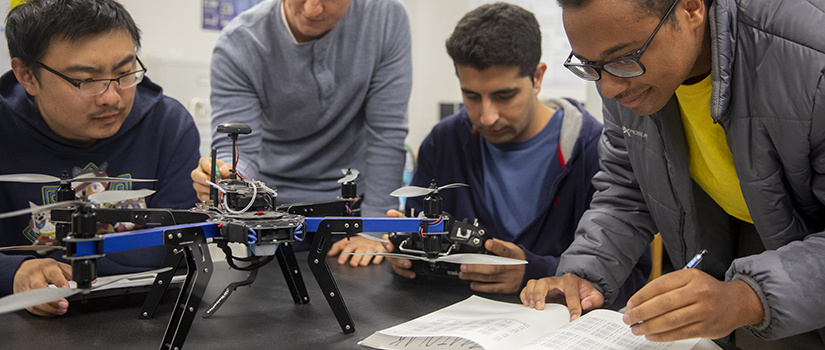By Rachel Myers | August 26, 2019
The University of South Carolina’s College of Engineering and Computing (CEC) has received nearly $1 million in funding through a grant from the National Science Foundation Scholarships in Science, Technology, Engineering and Mathematics Program (S-STEM). The grant will be used to implement programs that increase graduation rates of high-achieving, low-income students in undergraduate engineering and computing degree programs.
The Synthesized Program for Undergraduate Retention, or SPUR, will provide scholarships to at least 25 academically-talented engineering and computing students based on financial need. The first cohort will begin in the fall semester of 2020 and the second in the fall of 2021. The cohorts will be supported through four years of study both financially and through integrated curricular and co-curricular activities.
While enrollment in the CEC has more than doubled over the past 10 years, retention rates of low-income students have remained relatively unchanged. Ed Gatzke, chemical engineering professor and lead principal investigator on the project, hopes that SPUR can ease the financial burden on these students and set them up for academic success.
“SPUR should alleviate any need for these students to take out student loans, participate in work study or take on part-time jobs,” Gatzke says. “We hope that this will allow them to focus on being academically successful while moving along their chosen career path.”
SPUR students will receive academic assistance like tutoring and supplemental instruction, professional development, mentoring, career preparation assistance and other basic needs like housing and wellness resources. The $998,243 grant will help shape existing resources at the university into a series of integrated activities for SPUR students.
Jed Lyons, co-PI on the project and an associate dean in the college, says that they are looking at retention from a whole-person perspective, with programs to address everything from financial security, to health and wellness, to a sense of belonging and ultimately to academic achievement.
Lyons and Gatzke see the benefits of the program being twofold—higher graduation rates for low-income students and workforce development for the growing need of engineers and computer scientists in South Carolina. He says that the program will specifically recruit first-generation college students, which historically have been nearly all South Carolina residents.
“Projections through 2026 indicate that average annual openings in South Carolina in engineering and computing will be 2,240 and 3,200, respectively,” Gatzke says. “We’re seeking a home-grown solution to addressing this need through our recruiting emphasis on first-generation students.”
